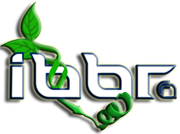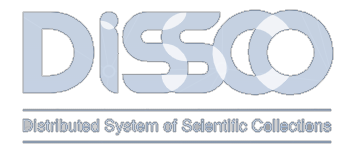|
Description
|
Honey bees are of pivotal importance for environmental stability and human economy, not only for their central role in the beekeeping industry, but, more importantly, for the ecological service they provide as pollinators of crops and wild plants. Large-scale colony losses are a big problem of global importance, still poorly understood. A specific causal agent has not been identified, even though it is largely accepted that a wealth of stress factors can synergistically interact to trigger a multifactorial syndrome, constantly associated with high loads of parasites and pathogens, facilitated by a reduced honey bee immunocompetence, not yet fully characterized at functional level. The central element of this multifaceted scenario is the Deformed Wing Virus (DWV), a pathogen that generates covert asymptomatic infections, kept under control by the honey bee immune system when not exposed to stress agents weakening the antiviral barriers. The mild effect of DWV basal infections has allowed a capillary spread of the virus, which is now virtually present in all apiaries of the world. However, the widespread diffusion of DWV, supported by the efficient vectoring activity of the parasitic mite Varroa destructor, represents a kind of “sword of Damocles” for honey bee colonies, in that any immunosuppressive stress factor, impairing antiviral control, can trigger an unbound replication of the pathogen with devastating consequences. UNICO aims to shed light on these complex immune interactions, pursuing the following general objective: UNDERSTANDING THE MECHANISMS THAT UNDERLIE THE IMPACT OF MULTIPLE STRESS FACTORS ON HONEY BEE IMMUNOCOMPETENCE, TO SET THE GROUND FOR DEVELOPING TARGETED MANAGEMENT STRATEGIES TO REDUCE COLONY LOSSES. First we will focus on the immune interactions between honey bees and DWV, aiming to unravel the mechanisms controlling the honey bee defence barriers and the DWV virulence strategies involved in their co-evolutionary arm race. This analysis will be extended at metaorganism level, by studying the effects of the DWV immunosuppressive strategy on the honey bee gut microbiota and on its protecting role against pathogen infections. Unraveling the molecular interplay between DWV and honey bees and the way it leads to an immunosuppressive syndrome will be an essential step towards the definition of a functional model aiming to describe the impact of other synergistically interacting stressors. To pursue this goal, we will concentrate our attention on three abiotic stress agents, which are the most relevant among those contributing to colony losses: (1) pesticides, (2) poor nutrition and (3) adverse environmental factors. UNICO experimental approach will shed light on the mechanisms accounting for the negative action of neurotoxic pesticides on the immune response of honey bees. The cross-talk between the nervous and immune system will be explored using Drosophila melanogaster as a model system to identify key-genes involved in the neuroimmune regulation. This will in turn allow to analyze the impact of neurotoxic pesticides on honey bee immunity. Regarding the impact of nutrition on immunity, we will investigate how different diet regimens and food sources influence the immunocompetence of honey bees and the expression of genes cross-modulating metabolism and immunity. The impact of pesticide and nutrition will be further assessed at metaorganism level, by studying their effect on honey bee gut bacterial symbionts, which are key-players in the modulation of immune responses, gut physiology and homeostasis. Lastly, we will clarify if and how adverse environmental factors can impair the immune balance, thus affecting the control of DWV covert infections. The new information made available by the research activities described above will allow to develop a functional model describing the complex network of interactions among different immunomodulating stress factors. This immune model will provide the rational framework for defining and testing new immunostimulatory strategies, mainly based on nutritional plans and the use of probiotics, aiming to alleviate the negative impact of immunosuppressive stressors on honey bees. UNICO is a science-driven project, which will allow a significant advancement of basic knowledge on immunity and its modulation by interacting environmental factors, setting the stage for the development of new effective tools and rational strategies, promoting honey bee resilience, which are easy to apply and are expected to reduce honey bee colony losses, with an immediate significant impact on beekeeping industry. |




